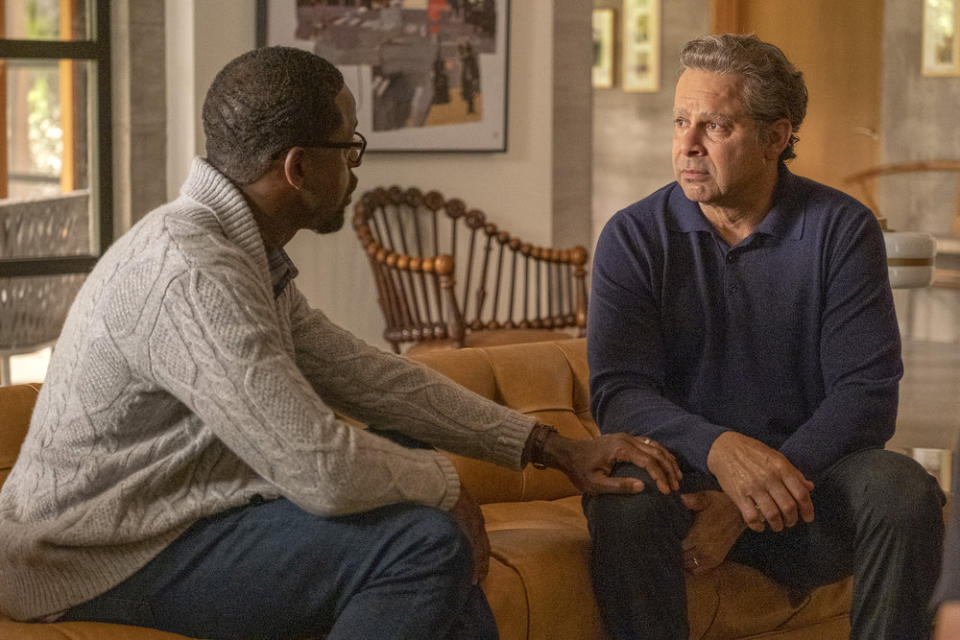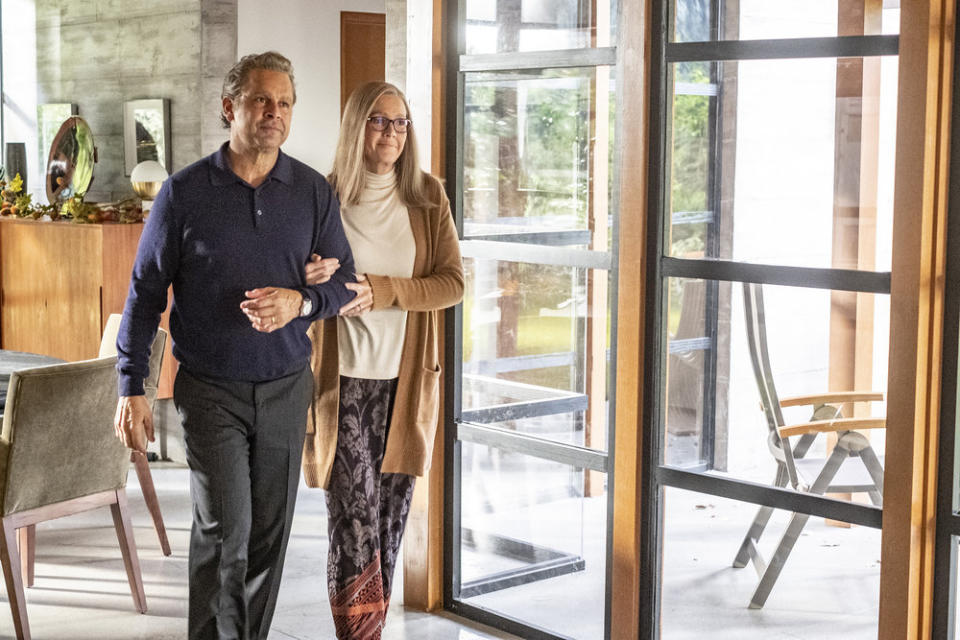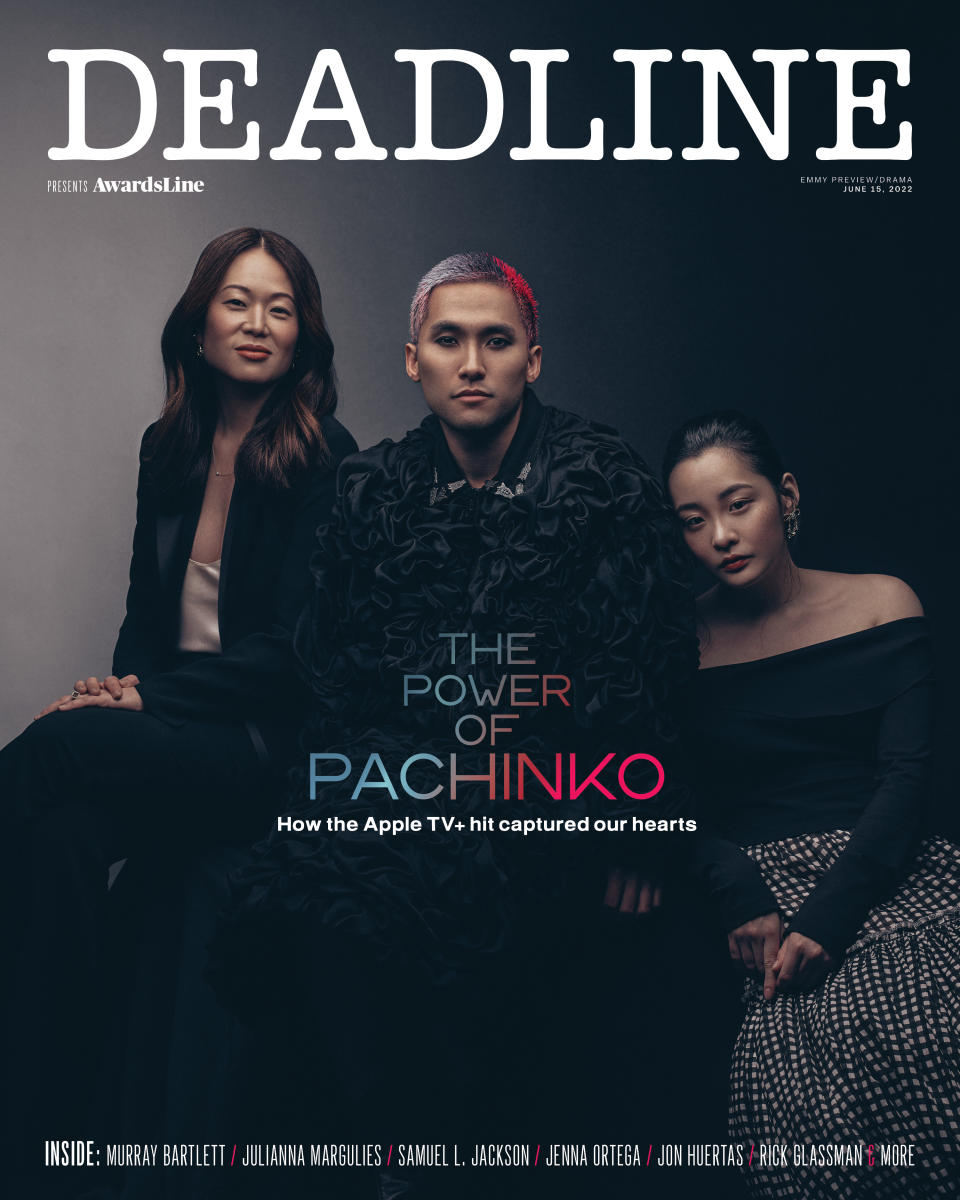How ‘This Is Us’ Star Jon Huertas Rose From The Ashes Of ‘Castle’ To Achieve Acting, Directing Success
- Oops!Something went wrong.Please try again later.
- Oops!Something went wrong.Please try again later.

Jon Huertas was in Puerto Rico when he learned that he was suddenly unemployed—the series he starred in, Castle, had just been canceled by ABC after eight seasons. As a seasoned actor, he knew this was par for the course. But little did he know that what was coming up next for him would change his life and his career. Huertas went on to land the role of Miguel Rivas on the NBC hit This Is Us across the show’s six seasons, and through that new opportunity, was able to make his dream of becoming a director a reality.
What was the audition process like to get the role of Miguel in This Is Us?
More from Deadline
TV Talk Podcast: Emmy Voting Begins Today; Here Are Our Top Picks In Acting Categories
It Starts On The Page: Read Dan Fogelman's Series Finale Script For 'This Is Us'
When I came home from Puerto Rico, I auditioned for potential roles in Ozark, One Day at a Time and This Is Us. The casting directors for This Is Us loved me for the role of Mike, who later became Miguel. I met with [creator] Dan Fogelman and his team at Paramount for a chemistry read and I remember thinking I was the token choice because the character was originally written as a white guy. So, I thought that made me the person who auditions so they can say, “Oh, we tried someone diverse and it didn’t work.” It was like that scene in the “Miguel” episode when he goes in for the job interview. We recreated that scene from my audition for the episode. I left Paramount and about 15 minutes later I got the call that I landed a recurring role on the show as Jack [Milo Ventimiglia]’s best friend.

Ron Batzdorff/NBC
Did you always know how important Miguel would be to the show’s story?
A week after my casting, I was asked to go to the Valley to get a lifecast made, which is when they use silicon and plaster to make a reproduction of your head. I asked why I was doing this, and they explained I would need it when I was older and playing Rebecca [Mandy Moore]’s husband. I thought they had me confused with Milo Ventimiglia because he was her husband, but they quickly corrected me, “No, Miguel will be married to Rebecca.” I had no idea. Dan later explained this was going to be a huge twist: Rebecca marries her husband’s best friend. I asked them immediately, “How are people going to react to this?” They reacted just as expected, they thought horrible things about him for a long time. As the show got more popular, they upgraded me to series regular, and the rest is history.
Were you involved in the evolution of Miguel?
When I was cast, Miguel was this raw piece of clay. The producers invited me to sit with them each season to help mold him. What I loved most about working on this show is that they allowed me to collaborate on his evolution. I’m proud of how we shaped Miguel into this very successful character with a unique background and story. We slowly planted little seeds about the man Miguel was across each season. That culminated in the “Miguel” episode, that was born from the conversations we had each season.
You made your directorial debut in the Season 5 episode “The Ride”. Is directing something you always wanted to do?
I wanted to direct since I was on Castle. [This Is Us EP] Ken Olin somehow got wind that I wanted to direct. He sat me down in Season 1 and told me he was going to get me in the director’s chair at some point. The show was such a success that everyone wanted to direct the show from A-list actors to feature film directors. I had to bide my time while these amazing creatives had their chance. Then my turn came around. It was really a dream come true. This was the best way for me to have my first experience in the director’s chair because I already had a talented cast and crew supporting me, and who trusted me. You learn very quickly that you’re responsible for every word on that page, not just your dialogue, and for every aspect of filming. This was the most gratifying experience of my career. From the moment we started shooting the episode to delivering the director’s cut, I felt the most overwhelming sense of accomplishment, even more so than I’ve ever felt as an actor. Well, that is until we did the “Miguel” episode.

Ron Batzdorff/NBC
Do you plan to focus more time behind the camera now?
I’m hoping to have a balance because I don’t think I’m ready to hang up my hat as an actor yet, but I am definitely leaning into directing now. There are a lot of opportunities on that front, and I’ve already booked a couple of jobs directing for network TV. I’ve been working for 15 years straight as an actor since Generation Kill without a break, so that’s what I’m focusing on. When considering future roles, I need to make sure it’s the right job and that it ticks off all the boxes for me as far as quality of representation for Latinx people.
How do you feel about how Miguel’s story ends?
What I think was brilliant about holding back on revealing more is that we got this beautiful gift of an episode about Miguel that may not have happened otherwise. The impact the episode had on people made it worth the wait. The feedback we got from caretakers, immigrants, people who feel caught between two worlds, Afro Latinos, and the Latinx community who felt seen was astonishing. Doing it all in one episode made it more impactful. There were even people who hated Miguel before who reached out to apologize. So many apologies! I tip my hat to Jonny Gomez who wrote the episode that touched so many people from different walks of life who found themselves in the episode somewhere.
Now This Is Us is over, was it tough to say goodbye to Miguel?
I’m not the type of person who cries watching the show, but this character was a part of me for six years. Saying goodbye the way we said it was so beautiful that I blubbered. I think because Miguel’s final episode was so meaty, it sparked interest in people at the studios and networks which will hopefully bring about more opportunities for someone like me to be at the heart of a series.
What are you taking with you from your experience working on This Is Us?
Working on the show taught me the value of being a great scene partner. The cast consistently gave 100 percent to each performance even if they weren’t on camera for a particular scene. So, when Sterling K. Brown or Justin Hartley or Mandy Moore gave powerful performances, the rest of us supported them and they would do the same for us with the same energy and respect. That experience elevated me, because as an actor, this is something that we sometimes forget and it’s important to keep the continuity of the emotion. Moving forward, this is something I will be conscious of.

The show leaves a powerful legacy in its wake that was expanded further with the launch of the Somos Nosotros scholarship. How did that come about?
The scholarship is one of the most special things I’ve seen a cast come together to do. The legacy of the scholarship shares the real meaning of This Is Us, it’s including everyone. We’re creating parity and equality by supporting Latinx creatives—because of my background—so there will be more characters like Miguel on TV.
You have such a long list of credits, where does Miguel fit on your list of favorites?
I would say Miguel is my favorite so far. Thanks to him, there are a lot of conversations about the importance of telling stories that include a broad spectrum of life in the world. I’m feeling hopeful about seeing new shows like the new Quantum Leap with an Asian lead, which was championed by Lisa Katz at NBC who was a champion in getting Miguel’s story out there. Also at NBC is Grace Wu, who is prioritizing diverse storytelling and casting personally. They both said they were inspired by the “Miguel” episode and how it represented the types of stories they want to see told. I’m so proud of Miguel’s legacy and I hope he continues to inspire viewers and executives to push for authenticity in storytelling.
Best of Deadline
2022-23 Awards Season Calendar - Dates For The Oscars, Emmys, Tonys, Guilds, Festivals & More
NFL 2022 Schedule: Primetime TV Games, Thanksgiving Menu, Christmas Tripleheader & More
Sign up for Deadline's Newsletter. For the latest news, follow us on Facebook, Twitter, and Instagram.

